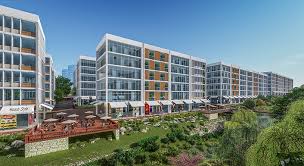
UAE & Dubai’s Leading ERP Software Today
📌 Introduction
Enterprise Resource Planning (ERP) software has become the backbone of modern businesses. In the UAE and Dubai, where companies range from agile startups to global conglomerates, choosing the right ERP system is crucial. This guide dives deep into:
- What ERP software really means
- Why ERP software in Dubai has unique demands
- The benchmarks that define the best ERP software in UAE
- How to evaluate, implement, and maximize ROI
- Hands-on guidance for a successful ERP journey
We’ll also explore market trends, real UAE case studies, and actionable guidance to help you navigate this critical decision.
1. What Is ERP Software?
ERP (Enterprise Resource Planning) software is an integrated suite that centralizes key business functions—finance, inventory, HR, sales, procurement, and more. By connecting these departments, ERP enables data-driven decisions, efficiency gains, cost reduction, and growth scalability.
Core benefits include:
- Unified dashboards for real-time reporting
- Automated workflows that eliminate manual intervention
- Accurate tracking of assets, orders, and supply chains
- Industry-specific modules tailored to verticals (e.g., manufacturing, retail)
ERP transforms fragmented systems into a cohesive digital powerhouse.
2. Why ERP Software Dubai Needs Special Consideration
Dubai’s business ecosystem is unique:
- International, multicultural workforce and operations
- Mandatory VAT compliance since 2018
- Multi-currency and multi-company setups
- High standards for scalability, security, and automation
- Demand for cloud-based, mobile-first ERP
Thus, ERP solutions in Dubai must cater to complex regulations, digital innovation, and diverse corporate profiles.
3. Key Features That Make the Best ERP Software in UAE
When evaluating ERP providers in the UAE, look for:
3.1 VAT & Regulatory Compliance
Built-in support for FTA-compliant VAT modules in both Arabic and English.
3.2 Multilingual & Multi-Currency
Interfaces and reports in English/Arabic; support for dirhams, riyals, etc.
3.3 Cloud & Mobile Deployability
SaaS/cloud-first approach, mobile access, and regular updates.
3.4 Comprehensive Modules
Core modules for finance, inventory, HR, CRM, manufacturing, reporting.
3.5 Localization & GCC Focus
3.6 Customization & Integration
Flexible APIs and extensible architecture for custom workflows.
3.7 Scalability & Support
Cloud scalability, local partnerships, UAE-based support teams.
4. Top ERP Choices: Market Leaders in UAE & Dubai
4.1 SAP Business One & S/4HANA
- Used by SMEs (Business One) to large enterprises (S/4HANA)
4.2 Oracle NetSuite
- Cloud-native, robust global compliance, multi-currency
4.3 Microsoft Dynamics 365
- Unified CRM+ERP, seamless integration with Office 365, AI-powered tools
4.4 Odoo
- Open-source, modular, customizable—gaining traction in UAE
4.5 ERPNext
- Flexible, open-source with full ERP suite, budget-friendly
4.6 Focus 9 & Compass ERP
- Middle East tailored: VAT-ready, Arabic support, regional trust
4.7 Sage 300 / Sage X3
- Proven ledger and inventory management; multi-branch support
4.8 Other Notables: Epicor, FirstBit, JD Edwards
- Industry-specific and mid-market solutions with local UAE presence
5. ERP Software Dubai: Platform Comparisons
| Platform | Ideal For | Strengths | Considerations |
|---|---|---|---|
| SAP Business One | SMEs with growth aspirations | VAT-ready, robust finance, global brand | Requires implementation expertise |
| Oracle NetSuite | Scale-ups, global firms | Cloud-first, strong analytics, compliance | Subscription costs can rise |
| Dynamics 365 | Microsoft-aligned firms | Office2ERP synergy, AI features, modular | Complexity across modules |
| Odoo | Budget-aware SMEs | Modular, open-source, customizable | Needs skilled implementation team |
| ERPNext | Startups, cost-sensitive | Free option, complete ERP | Community support needed for complex features |
| Focus 9 / Compass | GCC-focused businesses | Localized, Arabic support, VAT compliance | UI feels dated vs global competitors |
| Sage 300/X3 | Traders, multi-site firms | Strong accounting, multi-branch | Admin overhead for non-standard modules |
6. How to Choose the Right ERP for You
6.1 Evaluate Your Needs
Map business size, modules required, integration needs, and budget.
6.2 Prepare a Requirements Document
Include workflows, user roles, reporting, and data migration plans.
6.3 Vet Vendors
Check local presence, UAE case studies, FTA certifications.
6.4 Consider Total Cost
Factor implementation, training, licensing, and support.
6.5 Run Demos & Trials
Use real business data to test features and usability.
6.6 Review Support & SLA
Ensure robust local post-deployment support and uptime guarantees.
6.7 Pilot Before Rollout
Start small, refine based on feedback, then scale across departments.
7. Implementation Best Practices for UAE Businesses
- Strong project governance: Assign clear leadership and timelines.
- Change management: Communicate updates and resistances early.
- Data migration rigor: Cleanse data before transition.
- User training: Role-based training and continuous support.
- Use phased approach: Start with finance, then scale modules.
- KPIs & monitoring: Track efficiency, error rates, ROI.
- Continuous improvement: Stay updated with releases and re-train staff.
8. Real-World Case Studies from UAE
8.1 Mid-Size Trader – Odoo
Localized ERP with custom inventory workflows, regional reporting.
8.2 GCC SME – Focus 9
Arabic interface, VAT-ready, deployed across Dubai, Abu Dhabi, Muscat.
8.3 Manufacturing Firm – SAP Business One
End-to-end material planning, compliance support, integrated finance.
8.4 Startup – ERPNext
Low-cost open-source, scaled as business expanded, migrated to cloud VPS.
9. Trends Shaping ERP in UAE & Dubai
- AI & Analytics: Predictive insights via Dynamics 365, NetSuite.
- Cloud-first Shift: SaaS dominates, with redundancy and scalability.
- Mobile Access: Field teams require mobile-enabled ERP.
- Industry Verticals: Niche solutions for food, construction, F&B.
- Localization Push: VAT, Arabic, and regional compliance features.
10. Challenges & How to Overcome Them
- High upfront costs: Mitigate via phased rollouts and clear ROI.
- Change resistance: Encourage involvement and training.
- Data quality issues: Dedicate time for cleansing.
- Vendor lock-in: Ensure your ERP integrates well and data is exportable.
- Custom complexity: Avoid over-customization; prioritize core needs.
✅ Conclusion
ERP software is essential—not optional—for UAE and Dubai businesses today. Whether your needs align with global giants (SAP, Oracle, Microsoft), regional champions (Focus 9, Compass), or adaptable open-source options (Odoo, ERPNext), attention to localization, compliance, and future scalability is crucial.
By following a structured selection and implementation process, businesses can streamline operations, enhance decision-making, and drive growth, all while staying aligned with UAE’s dynamic market and regulatory ecosystem.
❓ Frequently Asked Questions
1. What defines “ERP software”?
ERP integrates key business functions—finance, inventory, HR, CRM—into a unified system for real-time operations management.
2. Why does ERP software Dubai need localization?
Dubai mandates VAT compliance, Arabic support, multi-currency handling, and robust cloud/mobile features—necessitating tailored ERP solutions.
3. Which ERP is considered best in UAE markets?
It depends on company size and needs: SAP/Oracle for enterprises; Dynamics 365 for Microsoft ecosystems; Odoo/ERPNext for SMEs/startups; Focus 9 or Compass for GCC-specific solutions.
4. How much time does ERP implementation take?
Typically 3–9 months: 1–2 months for planning, 2–4 months for configuration and migration, and 1–3 months for testing and training.
5. Can I switch ERP later?
Yes—choose platforms with open data export, phased modules, and minimal proprietary lock-in to allow future migration.


